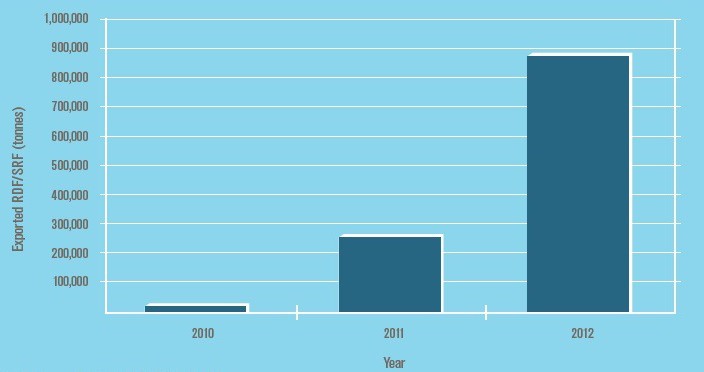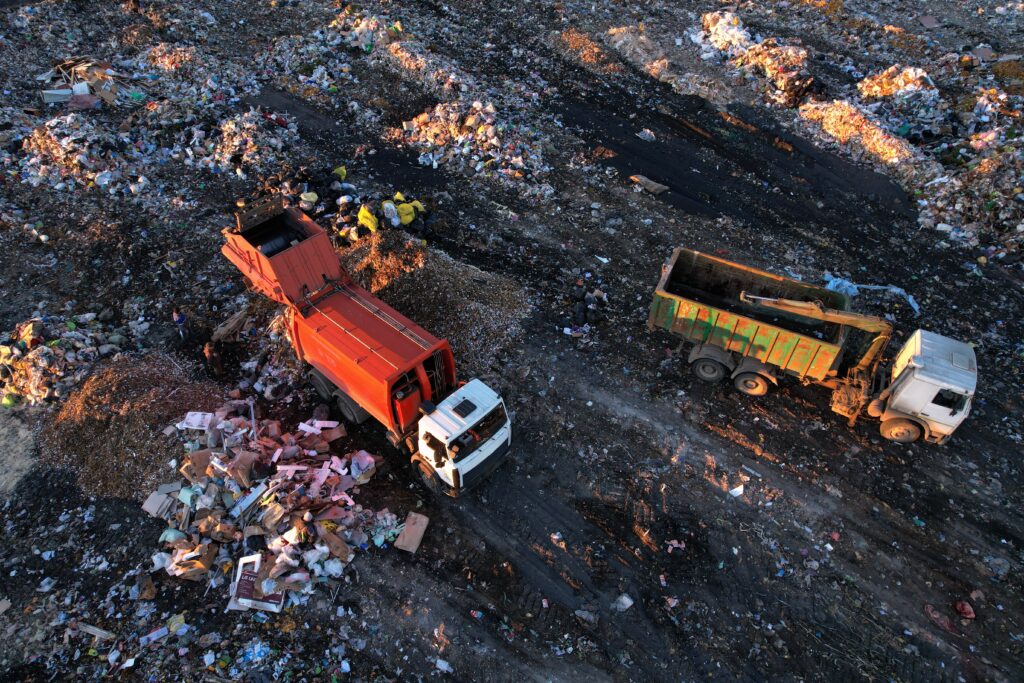The UK is not making the most of the waste-derived fuel and recyclable material it produces and is sending too much abroad, according to a parliamentary inquiry report published today (November 28).
The Associate Parliamentary Sustainable Resource Group (APSRG) report also warned that a lack of quality in the waste supply chain is limiting the UKs export options and potentially holding back investment in domestic infrastructure, adding that greater demand for recyclable materials needs to be created within the UK marketplace.

The report follows a six-month inquiry into the export of waste chaired by former environment secretary Caroline Spelman MP.
APSRGs Exporting Opportunity? Putting UK Waste to Work at Home and Abroad report makes 21 recommendations to government and industry on export of waste-derived fuels and recyclable material, boosting quality and improving innovation, enforcement and collaboration.
Among the recommendations in the report, it calls for reform of the PRN/PERN system; clearer policy and assessment from government on RDF and SRF; and greater monetary incentives to boost investment domestic waste treatment infrastructure.
The recommendations follow Defras recent announcement that it is to cut back its waste activities in 2014/15, instead calling on the private sector to increase its work in this regard (see letsrecycle.com story).
PRN/PERN reform
Recommended in the report is the urgent need to reform the PRN/PERN system to ensure that it never appears that export is incentivised ahead of use in the domestic market.
And, it calls on Defra and the Environment Agency (EA) to make sure PERNs are only issued for 100% of material that is recycled if supported by evidence provided by the exporter.
Furthermore, the report argues that Defra should look at reinterpreting current EA guidelines on packaging producer responsibility and bringing in a PRN system to provide a strong incentive for use of recycled content in packaging.
It recommends a PRN Offset system that would see packaging that has been used before include waste packaging which it says could drive domestic demand for recyclable material.
RDF/SRF

‘This report makes recommendations to central government and industry on how to build the most economically and environmentally robust system for waste and materials treatment, whether it be in the UK or abroad.’
Caroline Spelman MP, chair of APSRG waste export inquiry
Refuse Derived Fuel (RDF) and Solid Recovered Fuel (SRF) are being increasingly produced in the UK but predominantly exported for energy recovery abroad where there is greater capacity, which is currently a cheaper practice.
According to the report, nearly 900,000 tonnes of RDF and SRF was exported in 2012, compared to the less than 40,000 tonnes exported in 2010.
There has been a lack of investment in domestic capacity and, it says, clear government policy is now needed on how RDF and SRF can best benefit the UK as is value is being lost to export markets.
As such, the report calls on Defra and the Department for Energy and Climate Change (DECC) to assess RDF and SRF production capacity and potential markets.
It also calls for Defra to set a minimum processing level for RDF production in order to provide a distinction between waste-derived fuel and untreated municipal solid waste (MSW).
In order to encourage more investment in reprocessing and thermal treatment capacity in the UK, it argues that more fiscal measures and incentives as well as a clear long-term position on energy-from-waste are needed from government.
It adds that the Green Investment Bank (GIB) should investigate barriers to investment, using its previous report on the anaerobic digestion market as a template.
RDF/SRF exports 2010-2012 (source: APSRG and EA)

Other recommendations outlined in the report include:
- EA review of End of Waste approaches in the UK particularly on scrap metal to improve dialogue with industry
- Waste & Resources Action Programme (WRAP) to provide detailed information on range of glass separation options available
- Severe penalties for waste crime
- Improved data on commercial and industrial (C&I) waste.
- Overall resources strategy as part of industrial policy from government on the best use of resources in the supply chain.
Robust system
Commenting on the report, Caroline Spelman MP said: The UK has made huge improvements in recent years in how it manages its waste and the sector is justifiably now seen as one of the UKs economic and environmental good news stories. Nevertheless, important reforms and improvements are still needed.
This report makes recommendations to central government and industry on how to build the most economically and environmentally robust system for waste and materials treatment, whether it be in the UK or abroad. We hope that adoption of these recommendations will result in a more streamlined and robust management of our resources, and provide further steps towards the development of a truly resource efficient economy.
Related Links
The inquiry and report was supported by the British Metals Recycling Association (BMRA), Closed Loop Recycling, DS Smith Recycling and SITA UK.
Jim Malone, European sales and purchasing director at DS Smith Recycling Division, said that Chinas recent Green Fence initiative made the need for quality greater than ever as poor quality recyclable material should not be exported.
He added: We support the reports recommendations, particularly the need for targeted communications campaigns on materials capture and quality as well as ensuring C&I waste data is updated and accurate as possible to underpin strategies for future treatment of the waste stream.







Subscribe for free